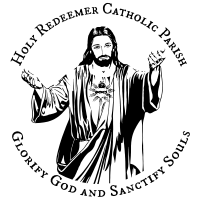The Eucharist, Part 13
Jesus Christ: Yesterday, Today, and Forever ~
Today we continue our twenty part series on the Eucharist. In case you missed the first three, you can find them here. This is in keeping with Archbishop Etienne’s pastoral letter on the Eucharist that you can find here (in case you missed it). Enjoy.
May God Bless You,
Fr. Thomas Nathe
Trent Horn, 20 Answers – The Eucharist. Catholic Answers Press. 2015
Get your own copy from Catholic.com
Question #13:
How should we receive the Eucharist?
Along with being properly disposed to receive the Eucharist by being free from the conscious knowledge of mortal sin, the faithful are required to fast before receiving the Eucharist. According to the Code of Canon Law, “A person who is to receive the Most Holy Eucharist is to abstain for at least one hour before Holy Communion from any food and drink, except for only water and medicine.” But the canon also specifically states that “the infirm” are not bound to observe the eucharistic fast.
Keep in mind that this is not a matter of revealed doctrine, but rather a discipline of the Church that can be changed. For most of Church history, the faithful fasted from midnight until they received the Eucharist the next morning. Only after that would they have a meal that would “break the fast” (i.e., breakfast). However, in 1953 Pope Pius XII reduced the period of fasting to three hours before Communion to encourage greater reception of the sacrament. In 1964, Pope Paul VI changed the period of fasting once again, this time to one hour before Communion; the current Code of Canon Law says “A person who is to receive the Most Holy Eucharist is to abstain for at least one hour before holy communion from any food and drink, except for only water and medicine.”
In regard to fasting after receiving the Eucharist, there is no specific rule on the matter, but a pious custom has arisen to not eat again until fifteen minutes after receiving Communion. This is done to allow the precious body and blood to dissolve in the stomach and cease to exist under the form of bread and wine (and thus cease to be the body and blood of Christ). A person who remains in church until Mass has concluded will usually fulfill this custom without even realizing it.
The general instruction of the Roman Missal (GIRM) states that when we go up to receive the body and blood of the Lord: “the priest raises the host slightly and shows it to each, saying, Corpus Christi (the body of Christ). The communicant replies Amen and receives the sacrament either on the tongue or, where this is allowed and if the communicant so chooses, in the hand.”
This is a sacred act, and no priest or communicant can change the words uttered based on his personal preference. For example, a priest may not licitly raise the host and say, “Jesus Christ” or “Our Savior,” but must instead say, “The body of Christ” (or a translation of the phrase in another language). Likewise, the communicant must say, “Amen” and not “thanks” or “Peace be with you.”
The communicant traditionally received the body of the Lord on the tongue, but according to the GIRM, “the consecrated host may be received either on the tongue or in the hand, at the discretion of each communicant.” The only time reception in the hand is impermissible is in the case of intinction, that is, when the host is dipped in the precious blood and then placed on the communicants tongue. Also, although reception in the hand is allowed, it is the universal law of the Latin rite that Communion is to be received on the tongue (unless an indult has be granted, as in the case in the United States, to allow reception in the hand), and no one, not even a priest, can forbid such reception.
In order to allow the Eucharist to be expediently dispensed, qualified laypersons may be allowed to distribute the body and blood of Christ. These people are not, however, called “eucharistic ministers,” as only the priest is the minister of the Eucharist. The Congregation for the Divine Worship taught in Redemptionis Sacramentum that “this function is to be understood strictly according to the name by which it is known, that is to say, that of extraordinary ministry of Holy Communion.”

